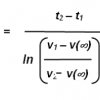2) It's benefits wore off after about three weeks
Wait, do you mean the benefits wore off after 3 weeks when they kept giving the mice GDF, or if they stopped giving it to them? If that former, that's a really bad sign. Hope it's the latter.
No No No . . . I posted the article answering many of these questions already before, this is a repost from awhile back from our esteemed Amy Wagers speaking to Bioscience Technology last December 2014: Link http://www.bioscienc...4-breakthrough#
Excerpt emphasis mine:
Wagers is headed for clinical trial as well, but wants to answer many questions first. Her group has finished the first of three studies gauging how long effects of GDF11 last. The above 2005 paper showed effects of parabiosis lasted three weeks, the time span studied. “A really important question is `Do you need to continuously supply the factor, or does it re-set the system?’ So far there is some evidence it re-sets.” The Stanford transfusion work is encouraging as “it says whatever activity is causing the changes persists in plasma for a period of time.” Aging may be about “imbalance of signals.”
First, this quote says "for a period of time" without specifying what the period of time is. That's not a basis for saying anything permanently reset!
Second, don't quote her in interviews. Look at the primary research. The primary Amy Wagers study is full text here:
http://www.ncbi.nlm....cles/PMC3677132
and contains the quote:
"Only at the highest dose (0.1 mg/kg) did we observe a reproducible increase in the plasma level of GDF11 1h after injection (Figure S5). Furthermore, analysis of plasma samples collected serially over 48h after a single i.p. administration of 0.1 mg/kg rGDF11, indicated that GDF11 levels were persistently elevated for approximately 24h after this single injection (Figure S5)."
So the research itself is telling you they are dosing the rats every 24 hours because that is how long they can sustain the higher level of GDF11.
There is nothing in that original research that gives any person any right to believe that anything has permanently reset.
Her team is working now to understand if there is a permanent reset of anything. But common sense tells you if the GDF11 rapidly diminishes after transfusion, probably there is no permanent reset. To hypothesize a permanent reset you have to make some pretty wild assumptions about an underlying physiology that no one has good knowledge of.
Edited by pone11, 05 February 2015 - 02:16 AM.




















































